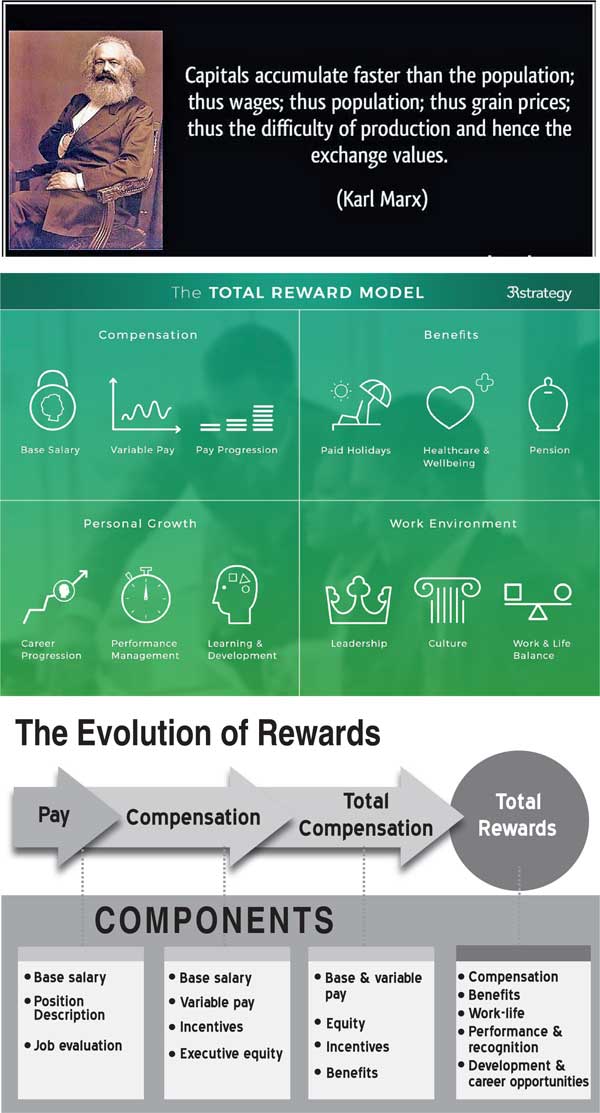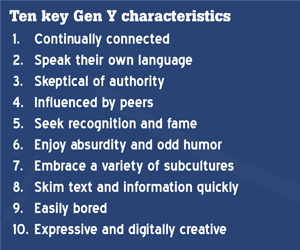13 Jul 2016 - {{hitsCtrl.values.hits}}

 The struggle between the capital (employer) and labour (employee) existed since the industrial revolution for profits and benefits. Capital cannot solely make profits without labour and as such, labour must have a right to the profits. The common causal factor for this struggle stems from ‘greed’ and some of these conflicts ended up in bloodshed in many instances. International Labour Day is a live example for such instances but was later benefitted by the employees globally.
The struggle between the capital (employer) and labour (employee) existed since the industrial revolution for profits and benefits. Capital cannot solely make profits without labour and as such, labour must have a right to the profits. The common causal factor for this struggle stems from ‘greed’ and some of these conflicts ended up in bloodshed in many instances. International Labour Day is a live example for such instances but was later benefitted by the employees globally.
Greed is a psychological perception and since greed is common for both parties engaged in the struggle, one has to find solutions for amicable coexistence through the increment of awareness on the issues affected by the other party. Wages can be defined as ‘monetary remuneration computed on hourly, daily, weekly or piece work basis. A fixed weekly or monthly wage is usually called a salary’.
 The objective of paying wages can be seen as follows: attraction of (talented) competent employees, compensation ahead of inflation, suitable with the market rates, to motivate, to maintain a good public image, to control cost of pay, ensure fair compensation and full disclosure. However, the most difficult task that the managers might experience without a system of total rewards is to attract millennials (Gen Y) to plantation jobs that existed for generations without improvements.
The objective of paying wages can be seen as follows: attraction of (talented) competent employees, compensation ahead of inflation, suitable with the market rates, to motivate, to maintain a good public image, to control cost of pay, ensure fair compensation and full disclosure. However, the most difficult task that the managers might experience without a system of total rewards is to attract millennials (Gen Y) to plantation jobs that existed for generations without improvements.
Most systems in the plantations industry in Sri Lanka are outdated and the approach taken for the issue with wages is a prime example of this. The issue of compensation or rewards is affected by the CEOs, executives in the corporate offices and in the plantations, the staff category of employees and the manual workers, alike. Both issues, that is, lifestyle and inflation are to be blamed for the growing need of wages or salaries year-on-year.
Only the manual workers do not have a fixed income as their remunerations are calculated for a period of 30 days of work on a daily basis and paid before the 10th of the following month by which time most of them are in debt due to the collective bills. Also it is a fact that almost 70 percent of the cost of production of plantations produces such as tea, rubber and coconuts is the cost of labour.
However, few companies have controlled the waste and their cost of labour is around 50 percent of the total cost of production. The waste consists of inefficiency on both parties. The management has no knowledge on how to add value or the importance of managing with strategies and due to this, the workers have lost sense of their duties and stick to their rights whilst terrorizing through political clouts.
In spite of all this, finding an amicable solution especially at a time the prices of commodities we manufacture have come down globally is no easy task. Complex issues of national scale cannot be solved with simple solutions as the resolution to the wages issue on regional plantation companies (RPCs) can affect the smallholder sector (which is the largest sector) with a lethal blow.
Therefore, we need two wage structures: one for the daily paid employees of the RPC sector and another to those who are employed in the smallholder sector. However, the legal compliance should be minimized only to pay minimum wages. Any employer should be given the freedom of paying higher than the minimum and as per the definition of wages quoted above; there is also a need to rethink of a different payment system such as a piece rate or on eight hours of work, but with definite outputs.
It is undeniable that there is a dire need of the productivity factors such as ‘quantity, quality, cost and delivery’ when thinking of wages, especially when supplying products to the global market. Regionalized or agro climatic level wages is another possibility as the cost of living varies amongst different regions. Nevertheless, before proceeding further, let us look at the current condition or the reality of the issue.
Benefits provided by the plantations
Remuneration often refers to the total compensation received by an employee, which includes not only the person’s basic salary but bonuses and hosts of other benefits. In the case of plantations there is a long list of fringe benefits as other forms of compensation. These include services of a regularly trained family welfare officer, trained crèche attendants to look after the children of the employees until they return from work, a medical professional with free medicine, regular medical checkups with the help of the estate management, security, free transport of sick persons to hospitals, pre and post-pregnancy assistances, repairs to the worker housing, providing assistance to promote sports activities, providing milk foods for infants below five years, maternity benefits, workman compensation, death donations and many other statutory payments such as provident funds Employees’ Provident Fund (EPF) and Employees’ Trust Fund (ETF).
In addition to the above mentioned, the plantation has to give seven perches of land free of charge to a worker’s family to put up their permanent houses. The estate management supports the workers to put up their own houses with some of the material such as sawn timber, sand and transporting them to the site at cost. Also a plot of land is given by certain plantations for cultivation of vegetables and fodder for animal husbandry.
In actual calculation, a worker on plantations costs an employer more than Rs.1200 per day. Moreover, the practice of animal husbandry is fading away from the plantations culture. Plantations, being a resident business, consist of a workforce that has plenty of extra time to spend on income generating projects. Either way, all the employees of RPC-managed plantations are shareholders of their respective companies. It is only if they do well that they will get a return out of their shares. Thereby the question here is, are they aware of this fact?
Expenditure habits creating a loss
The amount of remuneration and the form it takes is dependent on many factors, including the employee’s value to the company (full-time versus part-time; senior position versus entry-level), the job type (daily wages versus hourly or contract pay) and the company’s business model (some companies offer bonuses). One company might try to hire a desirable employee of another company by offering them better remuneration. However, much remuneration is increased because most of the workers are suffering from addiction to liquor which end up in malnutrition and anemic conditions that lead to the lowering of labour outputs.
Most of the workers in plantations in low country are involved in stealing crop and trees alike. As per the recent statistics, it is said that even the females (irrespective of the fact of the agro climatic region they belong to) have started consuming alcohol too. This is a routine practice in spite of the awareness created repeatedly by many successful NGOs and the Plantation Human Development Trust for many decades. Most of their earnings are spent on liquor. The hangover and connected domestic violence following addiction, ends up with the absenteeism. This affects the economic viability of the estates. Furthermore, they leave out trees/bushes without harvesting the potential crop.
There is no valid reason as to why the managers will dislike to work with responsible trade unions. The issue is if the TUs and management look at the same objectives from the same point of view. An ethical TU must work towards the development of the member and the organisation alike as both are interdependent for sustainability. It is quite upsetting to note that most TUs are operating with a TU centric agenda (which is political), quite contrary to the desired situation. TUs do not take adequate measures to prevent alcoholism from plantation culture. Some of the managers and staff are also part of this menace for reasons best known to them.
Bridging the gap
The story of wages on plantations is unique. However, one has to look at the issue from the background information as furnished above. Every employee of the plantations industry wants their company to be the ‘dream company’ to work for. However, it does not seem as if the top management has understood these ‘dreams’ well. The delay in understanding employee aspirations and aligning them with the organisational objectives will result in high employee turnover which is quite normal these days in the plantations. If not handled well, the final outcome will be closure.
The domain of HRM has plenty of tools to address the issues through a scientific management process and one such tool is the meaningful implementation of a performance management system. Such a system will lead to total rewards widely recognized amongst leading organisations globally. Total rewards include everything the employee perceives to be of value, resulting from the employment relationship.
Compensation
Compensation can be defined as the pay provided by an employer to its employees for services rendered (i.e., time, effort, skill). This includes both fixed and variable pay tied to performance levels. The jobs on plantations have not changed since its origin about 150 years ago. The work standards passed on to the next generation from the previous generation were probably merely through oral communication and the standards may have reduced down the line. Any job can be costed considering at least the three attributes time, effort and skill employed. Also the jobs have to be evaluated for redesign to suit the needs of the new generation of employees. Moreover, there are poor levels of mechanization and very less automation as well. The question is will this change ever come about in the plantations industry?
Fixed pay is what is defined and fixed and you will get the same salary which was stated in the letter of salary structure. Your package = Fixed Pay (X percent of total package) + Variable pay (100-X percent of total package). So the variable pay is part of your salary package. You will get your fixed pay at the end of every month but you will get your variable pay once in a quarter (may differ from company to company). At the end of every quarter, the company announces some percentage which would be given to you as part of variable pay.
Let’s assume the total package is Rs.1000 per month for an employee. Out of which he or she is getting Rs.700 as fixed pay and Rs.300 as variable pay. In this case, the employee will always get Rs.700 at the end of the month. Now let’s suppose this employee’s announces the percentage of variable pay to be 80 percent. The employee will then get (80 percent of the variable pay 300 which is equal to Rs.240), so at the end of the quarter he or she will get 240*3 = Rs.720. Pay progression is unheard of in the daily paid sector.
However, skill levels and competence play an important role in labour outputs. Competence can be measured and recognized through a scheme of extra rates that will be added on to the fixed wages component. The RPCs have spent millions on bringing up new plantings. The productivity of these fields is high as they are planted with high-yielding clones. However, the management is not allowed to increase daily work volume per worker (‘norms’) by the trade unions. If the TUs had extended their cooperation, the overall production costs can be easily brought down facilitating the RPCs to pay better wages to their workers.
Benefits
Benefits are programmes an employer uses to supplement the cash compensation employees receive. These health, income protection, savings and retirement programmes provide security for employees and their families. There are a lot of benefits working on a plantation and some of them were listed above. However, all of them are not cash compensations although it costs the employer. This is an area the RPCs could superintend again, whilst the concept of gain sharing is retained in memory.
Work-life effectiveness
A specific set of organisational practices, policies and programmes, plus a philosophy that actively supports the efforts to help employees achieve success at both work and home. Leadership and culture of the organisation matter here. The PHDT and estate worker housing cooperative societies can play an important role here by providing health benefit and retirement plan schemes. The need is to make a basket out of all components of the total rewards strategy and market them meaningfully.
Recognition
Either formal or informal programmes that acknowledge or give special attention to employee actions, efforts, behaviour or performance and support business strategies by reinforcing behaviours (e.g. extraordinary accomplishments) that contribute to organisational success.
Performance management
The alignment of organisational, team and individual efforts towards the achievement of business goals and organisational success can be measured. Performance management includes establishing expectations, skill demonstration, assessment, feedback and continuous improvement of the employees.
Talent development
This provides the opportunity and tools for employees to advance their skills and competencies in both their short-term and long-term careers.
Generation Y represents the people born during the 1980s and early 1990s. This is because children born during this time period have had constant access to technology (computers, cell phones) in their youth and they have required many employers to update their hiring strategy in order to incorporate updated forms of technology. Gen Y is also known as millennials, echo boomers, Internet generation, iGen and net generation. People born in Generation Y have had access to growing technology such as Internet and video games so they are optimal for computer-based occupations. Generation Y has seen the world grow so much in their lifetime that they do not even realize what it was like in the past. In comparison to Generation X, members of Generation Y are more technologically savvy due to their growth within the Information Age and are prone to use media in everyday life.
This is the labour force that is available for the plantation management to hire. Can one even imagine what it would be like if they worked on a plantation? Well, it is possible if the plantations industry is willing to transform on their terms. They will approach plantation work through technology and nothing less. This is why the plantations industry must work on 2020 targets (as discussed earlier), look at land-based investments, use HRM knowledge domain more and last but definitely not the least think of ‘total rewards’ as a strategy.
All these efforts are employed with the view of achieving US $ 10 billion revenue from the plantations industry by 2020. It is high time that ‘total rewards’ resulting in a ‘pay policy’ is implemented. ‘Total rewards’ at this point in time is an essential strategy. One of the viable options is to hire the services of a ‘compensation benefit specialist’. Such a professional will have competencies such as: Design, implement and manage salary classification and compensation programmes, conduct analysis of compensation and benefits within company, prepare occupational classifications, job descriptions and salary scale.
Improve recruitment and retention. Oversee competitive analysis, merit increases and salary structure. Develop job descriptions for various positions and determine appropriate base pay. Analyse surveys to ensure appropriate compensation across all departments. Forecast budget for salary increases. Administer and manage employee insurance plans. Oversee pension and savings plans. Advise on salary increase requests.
Negotiate collective agreements on behalf of employers or workers. Research job and worker requirements, structural and functional relationships among jobs and occupations and occupational trends. Advises managers and employees on state and federal employment regulations, collective agreements, benefits and compensation policies, personnel procedures and classification programmes.
The above list itself is self-explanatory on the suitability of such an arrangement. Both IPM and PIM (Harvard of Asia) are in a position to offer assistance. No one has to reinvent the wheel when the wheel is invented already.
(Lalin I. De Silva, former Editor of Ceylon Planters Society Bulletin, can be contacted at [email protected])
10 Jan 2025 11 minute ago
10 Jan 2025 2 hours ago
10 Jan 2025 2 hours ago
10 Jan 2025 4 hours ago
10 Jan 2025 4 hours ago